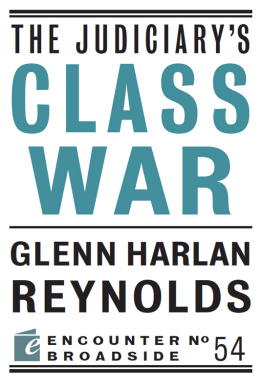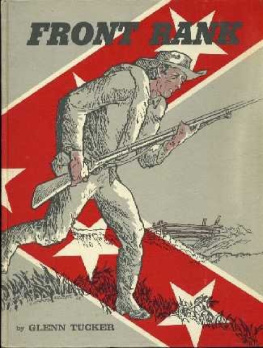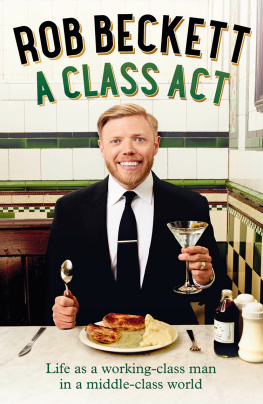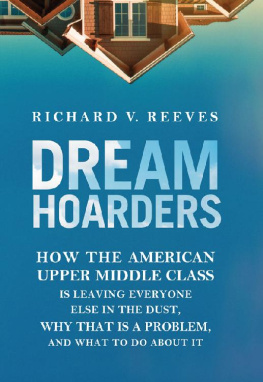
ENCOUNTER BROADSIDES
Inaugurated in the fall of 2009, Encounter Broadsides are a series of timely pamphlets and e-books from Encounter Books. Uniting an 18th century sense of public urgency and rhetorical wit (think The Federalist Papers, Common Sense) with 21st century technology and channels of distribution, Encounter Broadsides offer indispensable ammunition for intelligent debate on the critical issues of our time. Written with passion by some of our most authoritative authors, Encounter Broadsides make the case for ordered liberty and the institutions of democratic capitalism at a time when they are under siege from the resurgence of collectivist sentiment. Read them in a sitting and come away knowing the best we can hope for and the worst we must fear.

I N THE WAKE of the 2016 presidential election, we heard a lot about Americas division into two mutually hostile camps: a largely coastal, urban party run by educated elites and a largely rural and suburban flyover country party composed of people who did not attend elite schools and who do not see themselves as dependent on those who did. This divide is more fundamental than mere partisan identification, as there are Democrats and Republicans in both groups.
One of the best formulations of this division comes from photographer Chris Arnade, who has spent years documenting the lives of Americas forgotten classes. In his characterization, America is split between the Front-Row Kids, who did well in school, moved into managerial or financial or political jobs, and see themselves as the natural rulers of their fellow citizens, and the Back-Row Kids, who placed less emphasis on school, and who resent the pretensions, and bossiness, of the Front-Row Kids.
I dont want to rehash all the postelection discussion on Americas class divide, but while teaching constitutional law after the election, something occurred to me: While the Back-Row Kids can elect whomever they want as their president, senators, or representatives, there is one branch of the federal government (and of all the state governments) that is, more or less by its nature, limited to Front-Row Kids: the judiciary. While someone like Wisconsin governor Scott Walker can hold office without a college degree, the judiciary is, as a practical matter, limited to people who hold not just an undergraduate, but a graduate, degree. Since the mid-twentieth century, when the last justice to achieve admission to the bar via reading lawthat is, qualifying for the bar by apprenticing in an attorneys office rather than attending law schoolJustice Robert Jackson, left the Supreme Court, the judicial branch has been the domain of judges who are not merely highly educated but educated in the particular way that law schools require. They are, in short, Front-Row Kids of the first order.
Having had that realization, my march through the decisions of the Warren Court and its successors took on a different flavor. Again and again, important decisions, seen through the lens of this class divide, look like decisions on behalf of the Front-Row Kids. Even whenas in the famous Goldberg v. Kelly welfare rights casethe Supreme Court looks to have been holding on behalf of poor and uneducated people, it turns out that the actual beneficiaries are the highly educated: social workers and lawyers.
In this short book, I will expand a bit on Americas class division, talk about how it is embodied in the judiciary, and quickly sketch how this division seems to have affected important work done by the Supreme Court and other courts. I will then talk about how this (possibly unconscious) class bias on the part of the judiciary has inflamed Americas class war, and will conclude with some suggestions for making sure things get better, or at least, no worse.

A MERICA S N EW C LASS D IVISION
Americans have always been uncomfortable with the idea of social classes. As Paul Fussell notes in his book Class: A Guide through the American Status System, You can outrage people today simply by mentioning social class, very much the way, sipping tea among the aspidistras a century ago, you could silence a party by adverting too openly to sex. In America, he continues, the idea of class is notably embarrassing.
Class has, however, grown harder to escape. And where it used to be the case that class followed money and (secondarily) ancestry, increasingly class status in America is based on education, both its extent and its source. A hundred years ago, the upper class gained its wealth, and status, largely from its businesses: steamboats, or railroads, or coal. There was also an educated eliteusually not as wealthy, though seldom poorwho saw themselves as superior to the wealthy upper class because of their education. The rich were not always the elite, of course, as any Gatsby reader knows. But now the wealthy upper class has also become the educated elite. Rather than an offset to the core upper class, academia is now an adjunct to it.
While the Back-Row Kids can elect whomever they want as their president, senators, or representatives, the judiciary is the one branch of the federal government limited to Front-Row Kids.
That has been going on for a while. As Fussell writes, people plaster their cars with stickers advertising the schools they, or their children, attend, and do so in marked preference to advertising their churches. And the degrees handed out by these institutionsespecially the elite few, located mostly on the coasts, that constitute the Ivy League and its near kinare so valuable that for many, acceptance in a prestigious school is an almost life-and-death affair. As Fussell puts it:
The psychological damage wrought by this incessant struggle for status is enormous just because of the extraordinary power of these institutions to confer prestige. The number of hopes blasted and hearts broken for class reasons is probably greater in the world of colleges and universities than anywhere else. If no other institution here confers the titles of nobility forbidden by the Constitution, they do. Or something very like it.
This is also what Chris Arnade was getting at with his division of America into Front-Row and Back-Row Kids. In Arnades formulation, the Front-Row Kids have the following characteristics: Theyre mobile, global, and well educated. Their primary social network involves college and professional connections. They view intellect and intellectual achievement as the most important things in life, and view the world through that lens. Likewise, they derive meaning (and morality) from their careers and intellectual pursuits. They regard faith as irrational, and themselves as beyond petty divisions of race and religion. They see their lives as better than those of their parents and expect their childrens lives to be better than their own.
For the Back-Row Kids, on the other hand, its different. They tend to stay close to where they were born. If they have an education beyond high school, its from a trade school, junior college, or a nonelite state school. Their primary social network exists via institutions outside of work, such as family, geographical community, and church. Faith is central. They find meaning and morality through the decency of hard work. They have traditional views on race and gender. They see their own lives as worse than those of their parents and fear their childrens lives will be worse than their own.














